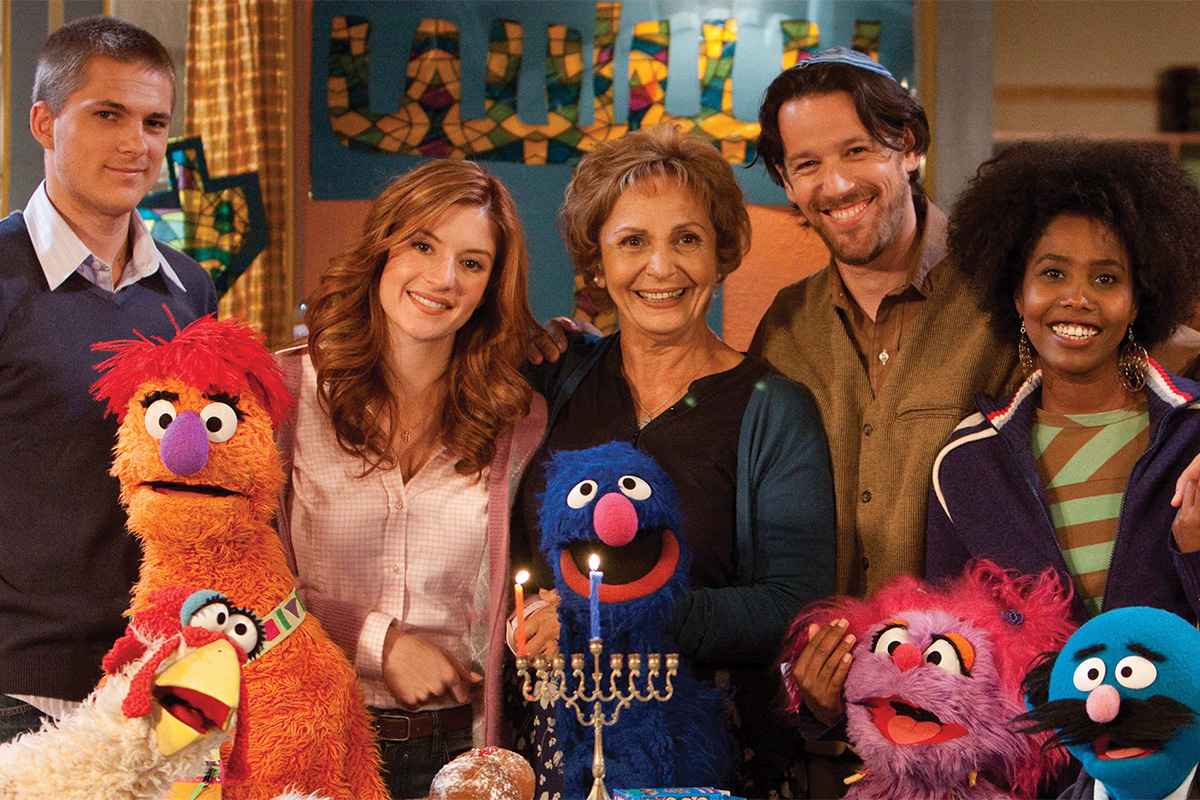If you’re a Very Online person like myself, you probably haven’t been able to escape two things on your Twitter timeline: Wordle and Elmo. I really didn’t want to put myself through any more word games besides my essays for class, so I’ve abandoned any hope of Wordle. But, I’ve watched the Elmo video about 30 times and texted all of my friends “I’m looossssing it over this video.”
If you are more a resident of the real world (I envy you), the Elmo video I’m referring to went viral in the first days of 2022. It features Elmo, his muppet friend Zoe and Gabby. Elmo asks Gabby if he can have an oatmeal raisin cookie and she tells him that sadly, she had the last one. Elmo shrugs it off and asks Zoe if he can have one of her oatmeal raisin cookies and she tells him that no, he can’t, because it is for her pet rock “Rocco.” This is when Elmo quickly becomes outraged. He asks Zoe how Rocco can possibly eat the cookie! He’s a rock! He doesn’t have a mouth! And of course, the punch line: “Rocco’s not aliveeeee!!”
I wish I could tell you why the 35-second “Sesame Street” clip is quite so funny. Is it because Elmo speaks in the third person? Is it because Zoe is so insistent that Rocco wants the cookie? Is it because this is all over an oatmeal raisin cookie that doesn’t even really rank in the top-three cookies? It’s honestly all of the above.
Another reason that this video resonated so deeply is that many of us grew up with Elmo. The red muppet and his friends were a fixture in our lives when we were young. They have been teaching us how to count and spell and share (but maybe not, if Elmo is any indication). But, I would be remiss if I didn’t mention how Elmo and Rocco reminded me of something that I had long forgotten: “Shalom Sesame.”
I started going to Jewish day school at age 8, but before then, I had a solid routine of Hebrew school once a week and a once-a-month or so helping of “Shalom Sesame.” My parents would put on this Jewish “Sesame Street” spin-off to help with my Jewish education. (While the original “Shalom Sesame” aired from 1983 to 1990, they rebooted it in the 2010s and brought everyone’s favorite Taylor Swift villain and Jewish celebrity Jake Gyllenhaal in to do a bit on the afikomen.)
“Shalom Sesame” was an English version of “Rehov Sumsum,” the Hebrew and Arabic “Sesame Street” that aired in Israel. Its purpose was to teach American Jewish kids Hebrew and about Jewish culture. They brought in characters from the Israeli version, such as Moishe Oofnik (cousin of Oscar the Grouch), Kermit haTzfardeah (Kermit’s Hebrew counterpart that literally translates to “Kermit the Frog”), Benz and Arik (Bert and Ernie’s counterparts) and more.
It’s not possible for everyone to get a Jewish education beyond the home, and “Shalom Sesame” recognized that, making Jewish education accessible. “Shalom Sesame” was unique in that it was for American Jewish kids. The reboot of the show brought on celebrities like Maya Rudolph and it had Seth Rogen and Elmo talking about the word “todah.” The show had segments where kids talk about all of the Jewish holidays and wear kippahs. The program taught Jewish kids about the Jewish months of the year and showed Cookie Monster learning how to say “beh te’avaon,” which is like a Hebrew version of bon appetit.
In one episode, Grover calls the Hebrew language “pure poetry.”
I agree with Grover. For me, “Shalom Sesame” was the shoresh, or the root, of my love for Hebrew. I learned the language beginning with “Shalom Sesame” — and being part of a Jewish family that always sang two songs on birthdays, one in English and one in Hebrew. “Shalom Sesame” was not enough for me to master that signature guttural “chh” sound, but it was enough for me to gain a baseline of love for the words. Even today, because I was immersed in the language in my elementary school years, I will sometimes think of a Hebrew word before the one in English. I am far too fond of the word balagan, which translates to mess or fiasco.
After the viral Rocco and Elmo clip sent me down a “Shalom Sesame” rabbit hole, I found a video that is entirely in Hebrew. A friend named Sayid brings his aunt Shoshana, the baker, some peaches from his village. As Grover looks on, he notices that Shoshana says the “Shehechiyanu” prayer before she bites into the fruit. Grover is confused, but Shoshana says that it is her giving thanks for life bringing her to this moment. “Shalom Sesame” was a normalization of Jewish culture in the familiar world of “Sesame Street.”
In another clip, Shoshana asks Grover if he can handle learning one more word. Grover, ever so determined, says of course, he can handle learning one more word. She teaches him mishpacha, or family in Hebrew. Shoshana tells Grover that, as he learns more words in Hebrew, he is a part of the “Rehov Sumsum” family.
Maybe it would help Elmo to put aside his anger and invite Rocco into his own mishpacha. Or, I guess once Rocco gives him an oatmeal raisin cookie.



